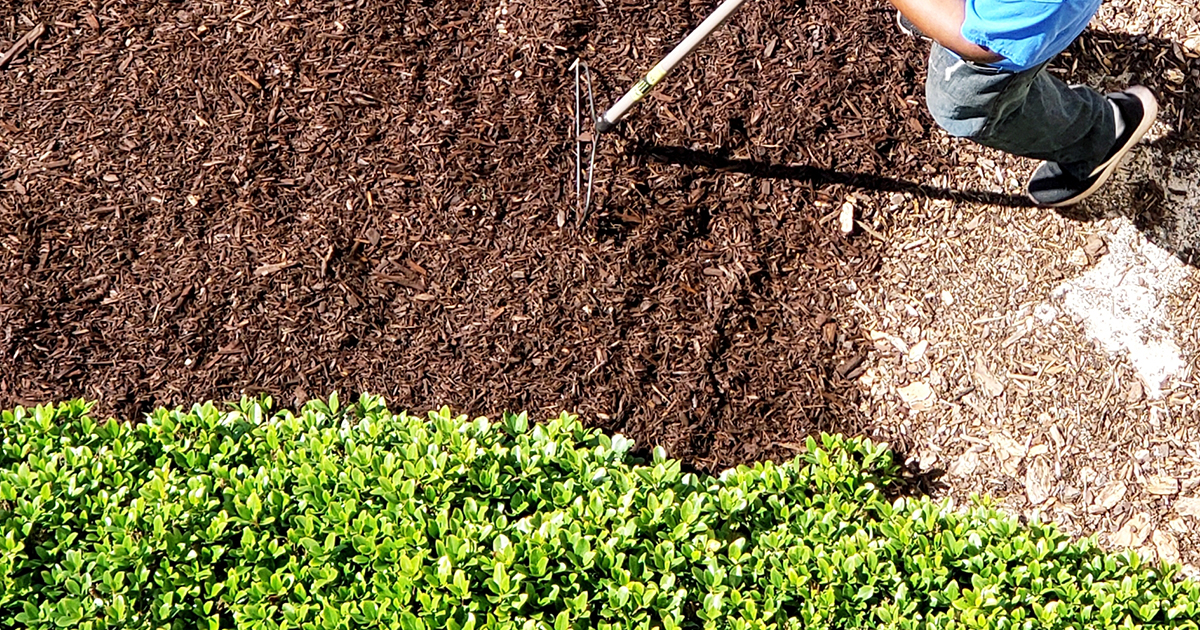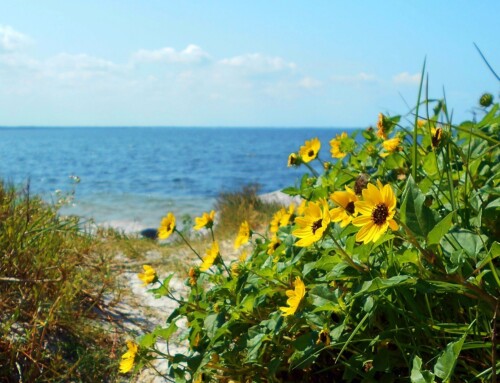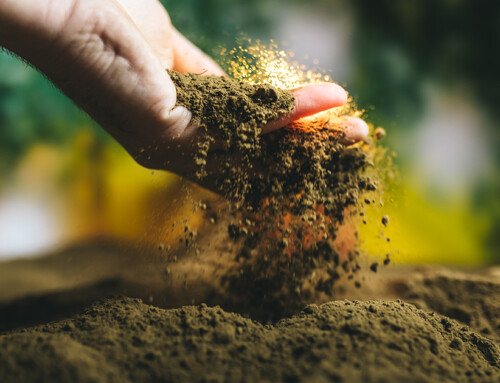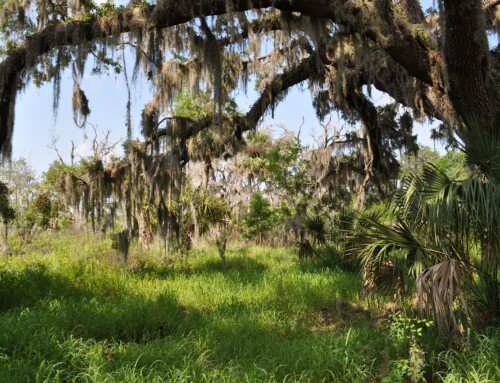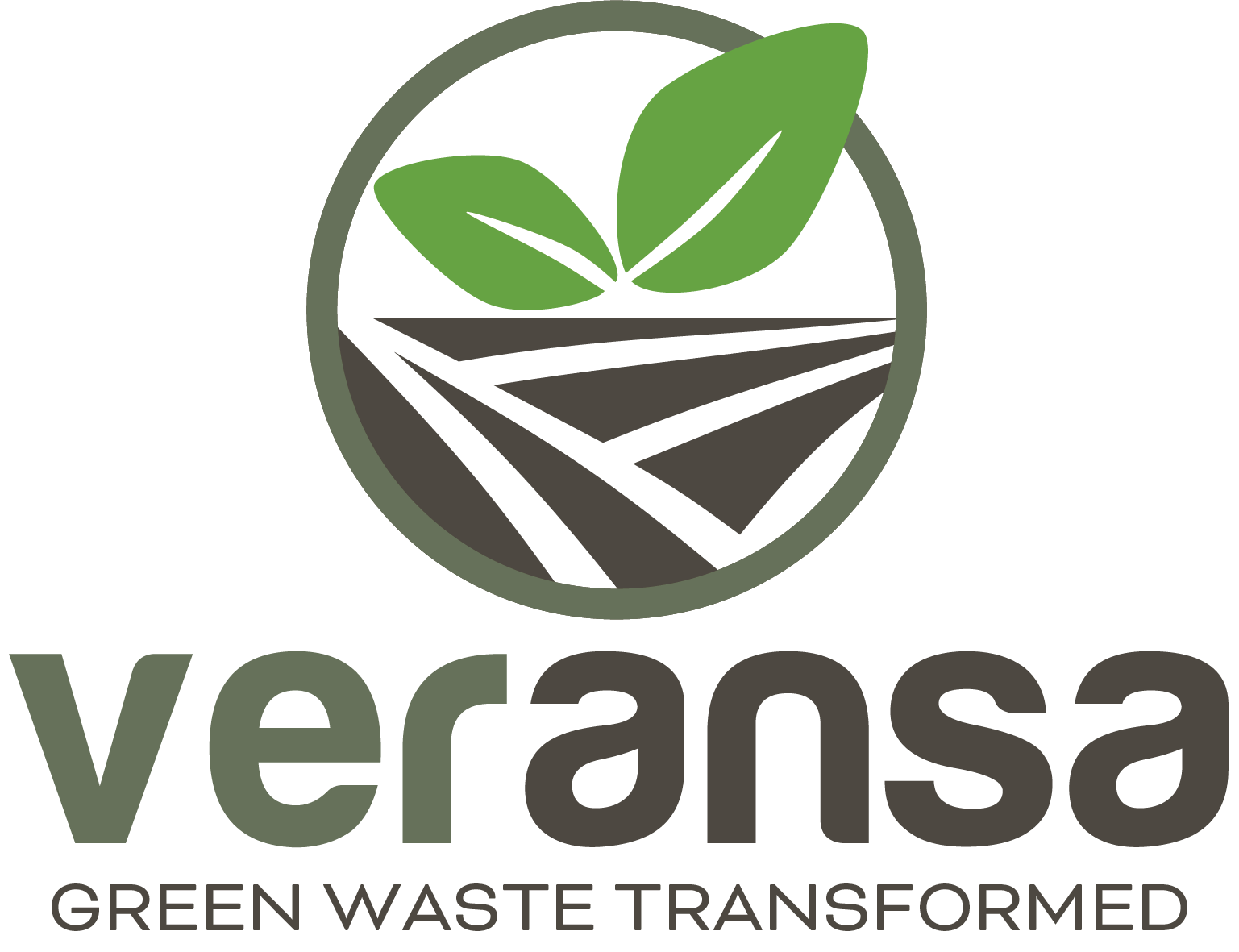Applying mulch encourages a holistic approach to gardening. Organic mulch contributes to sustainability ideals by reducing the need for excessive maintenance and eliminating toxic chemical applications.
Mulching delivers remarkable advantages to most gardens, regardless of size. There are many benefits of mulching that go far beyond adding beauty and consistency to your yard- although it does allow for a neat, manicured appearance that greatly enhances curb appeal. These benefits are varied but are sure to convince you that it’s time to purchase mulch for your yard and garden.
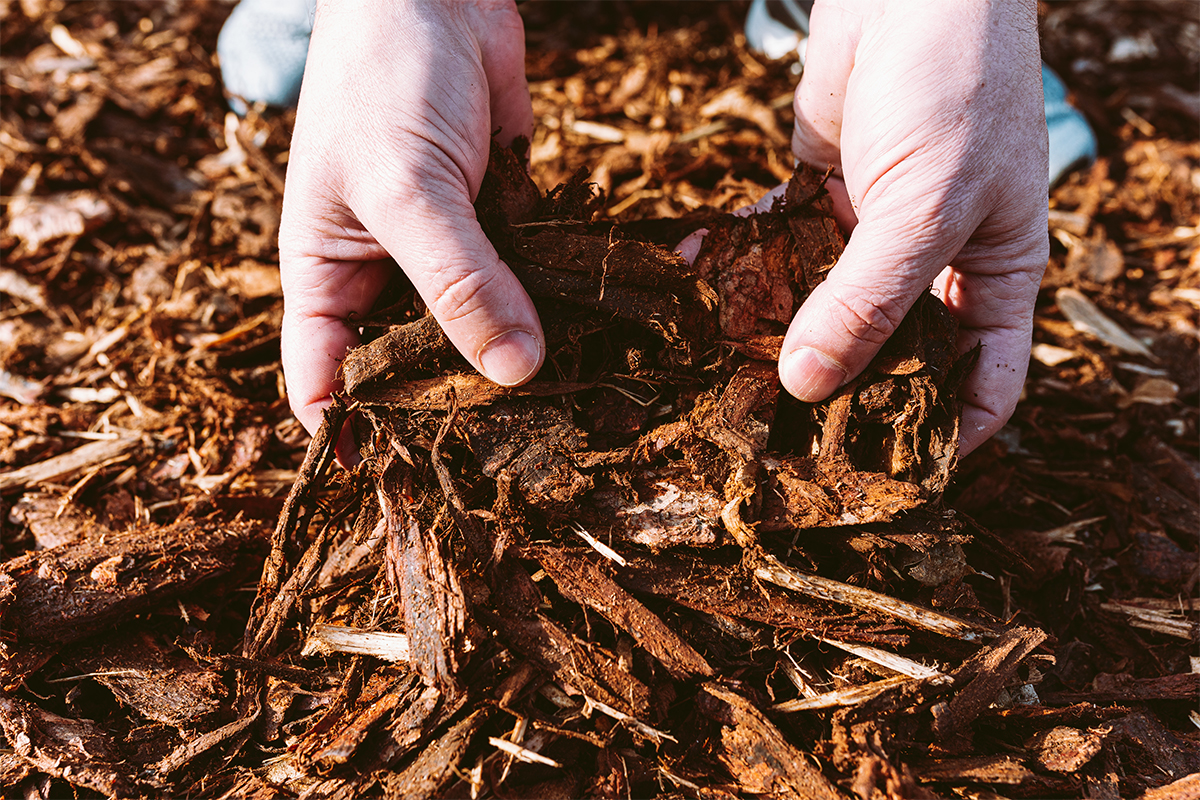
- Mulching is vital for soil health, as it acts as a barrier between the soil and the harsh realities of weather and climate.
- Mulch offers insulation to regulate the temperature of the soil, avoiding any fluctuations that can damage plant roots. (A benefit that is critical during blazing hot Florida summers!)
- Mulch helps the soil retain moisture by lowering the rate of evaporation. It also provides protection against the ravages of heavy seasonal rainfalls that can cause erosion, runoff, and the loss of valuable nutrients.
- Mulch delivers efficient weed control, serving as a barrier that blocks the sunlight weeds need to proliferate.
- Fewer weeds mean less competition for water, nutrients, and room to grow, permitting your cultivated plants to thrive.
- Because of its weed-controlling properties, mulch minimizes the need for chemical herbicides, allowing for an eco-friendlier garden.
Applying Mulch: Missteps and Misconceptions
Gardeners and landscapers who understand the importance of mulching are more likely to produce resilient, beautiful, and environmentally friendly results. However, there are many common mistakes that are made when it comes to mulch. Read on to ensure that you don’t fall victim to these common misconceptions.
More Mulch is Always Better: Mulching is beneficial for your garden – so you may be tempted to over mulch in order to multiply your success! Unfortunately, applying too much mulch can cause the suffocation of plant roots and promote fungal diseases. When mulch is too thick, water also has a hard time making it the plant roots as needed. Mulch should only be between 2-4 inches thick and be positioned way from the base of the plant or tree. Similarly, you’ll want to avoid “volcano mulching,” which is the practice of piling mulch up against the trunk of a tree or plant. Volcano mulching creates a moist environment conducive to rot, pests, and disease.
Any Mulch is Fine: Selecting and applying the wrong kind of mulch can have unintended consequences. Fine particle mulch, such as sawdust or shredded leaves, can block water infiltration, while mulches that release chemicals will stunt plant growth. Your best bet is to choose organic mulch materials, such as wood chips or compost, to enrich the soil while facilitating plant growth.
The Weeds Aren’t Hurting Anything: Not getting rid of the weeds before applying mulch can result in a garden or bed overrun with persistent weeds. Be sure to remove all weeds in the area and consider installing a weed barrier beneath the mulch to suppress weed growth. The same goes for mulching over plants that are sick or diseased. The mulch can trap pathogens in the soil and make the issue worse. Before mulching, remove and dispose of any diseased plant material to protect the overall health of your garden.
I’ll Just Add New Mulch On Top: When applying mulch in a new season, you can install it over existing mulch – but not before raking or breaking up the old layer. Leaving the old layer as-is can cause compaction, inhibit drainage, and block oxygen from reaching the roots. Be sure to rake and break up the existing mulch layer before laying down new mulch.
Mulch Doesn’t Need to be Watered: While mulch doesn’t need water, the roots and soil underneath it absolutely do. Because mulch creates a protective barrier, water can be trapped and not reach the levels where it is most needed. Therefore, it is necessary to water deeply and slowly, making sure that the moisture infiltrates all the way to the root zone.
Gardens are the Same Everywhere: Diverse regions and climates may have unique mulching recommendations, so be sure to research local guidelines and revise your mulching practices to reflect soil conditions in your area. Utilizing locally produced organic mulch products ensures that your mulch is ideal for protecting and restoring the local ecosystem.
At Veransa, we are dedicated to creating quality organic mulch and compost perfect for Florida landscapes. To learn more, click to read about our mission and process.

